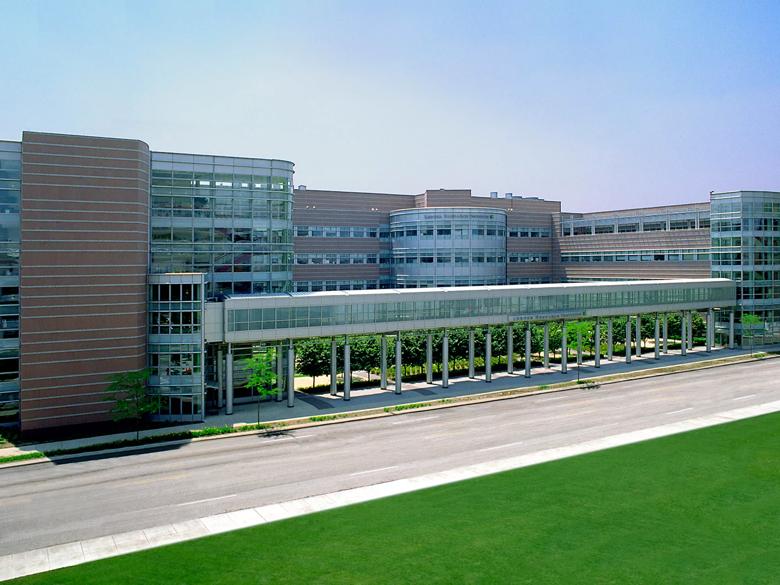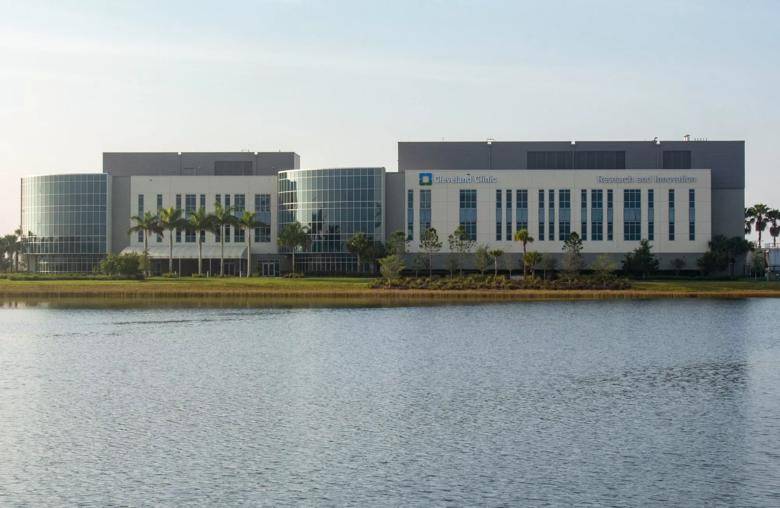Center aims to broaden understanding of emerging diseases, develop new therapeutics and vaccines


Image content: This image is available to view online.
View image online (https://assets.clevelandclinic.org/transform/e111292d-d137-47c8-a6be-265db65285c2/Lerner_012_jpg)
Lerner Research Institute
Cleveland Clinic is establishing the Global Center for Pathogen Research and Human Health to broaden understanding of emerging pathogens – ranging from Zika virus to SARS-CoV-2 (which causes COVID-19) – and to expedite critically needed treatments and vaccines.
The new center has been in the planning stages for 18 months and will span Cleveland Clinic’s Lerner Research Institute and the soon-to-open Cleveland Clinic Florida Research and Innovation Center (FRIC) in Port St. Lucie, Florida. A team of renowned experts will lead the center to advance research toward diseases such as COVID-19, highly pathogenic influenza, Dengue fever, AIDS and Zika virus-related conditions.

Image content: This image is available to view online.
View image online (https://assets.clevelandclinic.org/transform/e6f271ca-5081-48c2-81a5-6f8999e47d32/0414_FRIC001-1-scaled_jpg)
Cleveland Clinic Florida Research and Innovation Center (FRIC)
“Novel pathogens to which we have little or no immunity are a tremendous risk to global health,” said Serpil Erzurum, M.D., chair of the Lerner Research Institute. “We have some of the world’s top research experts in virology, immunology, genomics, population health and drug discovery coming together to form a team approach on infectious disease research.”
Leveraging Cleveland Clinic’s robust research infrastructure, the center’s researchers will uncover the scientific mechanisms of how SARS-Cov-2 and other pathogens cause disease. In addition, the researchers will closely collaborate with the newly established Cleveland Clinic BioRepository to have access to patient tissues and electronic medical record data through a large-scale secure database. The new center will be supported in large part by philanthropy.
The research team will collaborate with the drug developers at Lerner Research Institute’s Center for Therapeutics Discovery to rapidly translate research findings into life-saving therapies and experts in the Populations Health Research Center to understand socioeconomic factors that affect risk of infection and poor outcomes.
In light of the global pandemic and in anticipation of the new center’s opening, Cleveland Clinic is ramping up research related to COVID-19. A research registry of nearly 10,000 patients is collecting data from patients tested for COVID-19 at Cleveland Clinic and there are plans to integrate the data with the electronic medical record. The researchers will mine the data to inform other studies, such as the development of tools to predict risk and outcomes in patients.
Cleveland Clinic researchers published findings last month on a network-based prediction model using artificial intelligence to identify targets for drug repurposing in coronaviruses and COVID-19 specifically. Based on their findings, they prioritized 16 drugs and three drug combinations as potential treatments.
Other projects are uncovering how SARS-Cov-2 enters human cells, replicates and causes disease. A clinical trials committee has been formed to identify and prioritize the most promising therapies for mild to severe disease.
In partnership with Cleveland Clinic Florida, the new center will also conduct research at the Florida Research and Innovation Center building, a state-of-the-art research facility, complete with a biosafety level 3 laboratory anticipated to open in summer 2020. The facility features 107,000-square feet of high-tech laboratory and office space situated on eight acres of land.
“The new Florida Research and Innovation Center will complement and expand clinical research underway throughout Cleveland Clinic,” said Joseph Iannotti, M.D., Ph.D., Cleveland Clinic Florida’s Chief of Staff and Chief Academic and Innovation Officer. “Our vision is to create a research institute dedicated to taking bench discoveries and creating leading-edge diagnostics, preventatives and treatments for infectious disease, oncology and other pressing healthcare problems.”
“This new center will span our global healthcare system,” said James Young, M.D., Chief Academic Officer at Cleveland Clinic. “It will provide critical technologies and resources, empowering our clinicians and scientists to understand biological pathways and develop new treatments against the novel coronavirus and other dangerous pathogens.”
Cleveland Clinic is a nonprofit multispecialty academic medical center that integrates clinical and hospital care with research and education. Located in Cleveland, Ohio, it was founded in 1921 by four renowned physicians with a vision of providing outstanding patient care based upon the principles of cooperation, compassion and innovation. Cleveland Clinic has pioneered many medical breakthroughs, including coronary artery bypass surgery and the first face transplant in the United States. Cleveland Clinic is consistently recognized in the U.S. and throughout the world for its expertise and care. Among Cleveland Clinic’s 82,600 employees worldwide are more than 5,786 salaried physicians and researchers, and 20,700 registered nurses and advanced practice providers, representing 140 medical specialties and subspecialties. Cleveland Clinic is a 6,728-bed health system that includes a 173-acre main campus near downtown Cleveland, 23 hospitals, 280 outpatient facilities, including locations in northeast Ohio; Florida; Las Vegas, Nevada; Toronto, Canada; Abu Dhabi, UAE; and London, England. In 2024, there were 15.7 million outpatient encounters, 333,000 hospital admissions and observations, and 320,000 surgeries and procedures throughout Cleveland Clinic’s health system. Patients came for treatment from every state and 112 countries. Visit us at clevelandclinic.org. Follow us at x.com/CleClinicNews. News and resources are available at newsroom.clevelandclinic.org.
Editor’s Note: Cleveland Clinic News Service is available to provide broadcast-quality interviews and B-roll upon request.